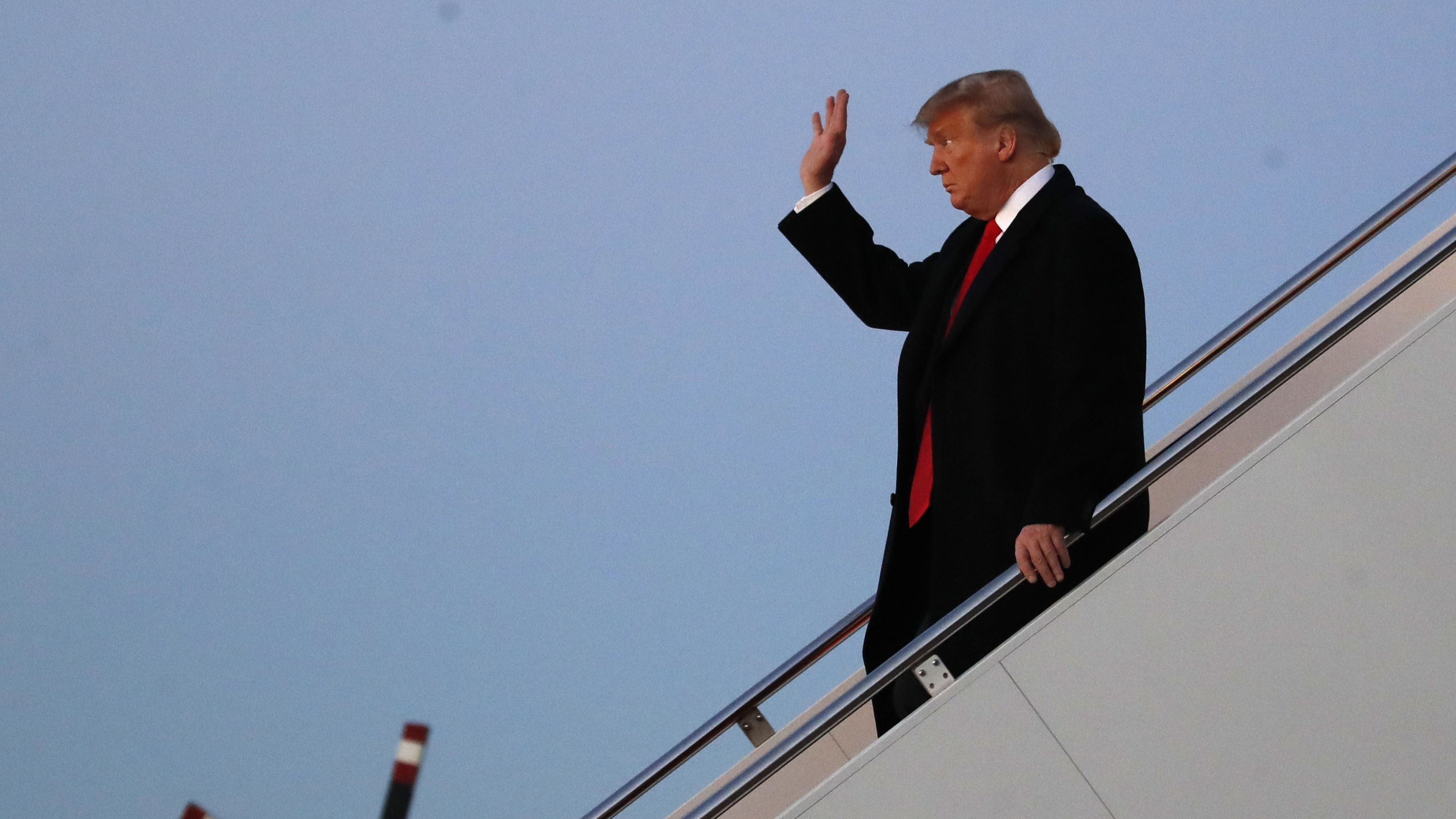
Lately, all our political controversies seem to involve a wall.
The government is shut down by the fight over funding for a wall on the southern border, with President Donald Trump and House Speaker Nancy Pelosi dug in for trench warfare. She pulled the plug on his State of the Union address. He canceled her flight to Afghanistan. You can almost hear the 2020 election galloping toward us and the prospects for peace running off into the distance.
But the other wall, which may turn out to be even more controversial, is the one that once divided the United States government’s intelligence services from its law enforcement authorities.
When Robert Mueller was named special counsel in May 2017, Deputy Attorney General Rod Rosenstein put him in charge of an existing FBI counterintelligence investigation, one that had been publicly disclosed by then-FBI Director James B. Comey in March 2017, during testimony to the House Permanent Select Committee on Intelligence. Mueller’s mandate was to investigate “any links and/or coordination between the Russian government and individuals associated with the campaign of President Donald Trump.” Consistent with “any counterintelligence investigation,” Comey had testified, the FBI’s investigation would “include an assessment of whether any crimes were committed.”
The problem is that the tools used for a counterintelligence investigations are beyond the powers of investigators in ordinary criminal cases. For example, the Foreign Intelligence Surveillance Act authorizes the government to approve wiretaps and related spycraft for “foreign intelligence” purposes “if the target of the electronic surveillance is a foreign power or an agent of a foreign power.”
The standard for a wiretap of a U.S. person in a criminal case is different. The federal Wiretap Act requires a showing that evidence of a crime will be uncovered.
That may seem like a distinction without a difference, but this is one of the “walls” that protects your freedom from the government’s power. The national security services are broadly permitted to engage in actions that protect the U.S. from threats abroad, but the powers of U.S. law enforcement agencies are tightly constrained by the Bill of Rights, or used to be.
The position of special counsel is authorized by Justice Department regulations that were approved in 1999, after a law authorizing the appointment of independent counsels was allowed to expire. These rules, known as the Part 600 regulations, authorize the U.S. attorney general to “appoint a Special Counsel when he or she determines that criminal investigation of a person or matter is warranted.” The regulations grant the special counsel “power and independent authority to exercise all investigative and prosecutorial functions of any United States Attorney.”
But U.S. attorneys didn’t have the authority to conduct counterintelligence investigations. They had to seek the assistance of the U.S. intelligence services for any “foreign intelligence” component of an investigation.
That was the “wall” in 1999. Then in 2001, foreign terrorists with box-cutters hijacked planes and flew them into buildings, and everything changed.
The USA Patriot Act of 2001 punched holes in the wall between national security investigations and U.S. law enforcement. The different standards for surveillance or searches made it difficult to put terrorism suspects on trial in U.S. courts, but even more troublesome, the Fourth Amendment right of Americans to be free from unreasonable searches and seizures has been eroded.
In 2016, U.S. authorities obtained a warrant from the Foreign Intelligence Surveillance Court to authorize surveillance of a U.S. citizen connected to the Trump campaign, part of an FBI counterintelligence investigation that eventually expanded to target Trump himself as a suspected Russian agent.
We know now that the material shown to the court in the application for the original warrant was straight out of an unverified opposition-research report on Trump, paid for by lawyers working for the Clinton campaign and the Democratic National Committee. The Justice Department’s inspector general is currently investigating the entire investigation to determine if “improper considerations” motivated any of the decisions made by FBI and DOJ officials.
Meanwhile, Special Counsel Mueller is simultaneously conducting a counterintelligence and criminal investigation.
President Trump and his legal team are reportedly considering whether to invoke executive privilege to keep the Mueller report, if one is ever completed, from becoming public. That probably won’t work. The wall of executive privilege crumbles on close inspection.
There actually is no such thing as executive privilege. George Washington was the first president to refuse to turn over official records to Congress, but eventually he did comply with the requests. Dwight Eisenhower coined the term “executive privilege” and invoked it dozens of times to prevent members of his administration from being questioned by Sen. Joseph McCarthy during his infamous anti-Communist hearings.
But when Richard Nixon and Bill Clinton went to court to fight for executive privilege, they lost, as did Barack Obama when he claimed executive privilege over 1,300 documents in the “Fast and Furious” gun-walking scandal.
The Constitution gives Congress the power to impeach the president, the vice president and all civil officers of the United States. Implicit in the power to impeach is the power to investigate. Logically, there can’t be an unwritten constitutional privilege to block the exercise of a plainly written constitutional power. When push comes to shove, Congress can see everything.
But the counterintelligence component of the Mueller investigation means some parts of his report likely will be classified, and the public may never know the full truth.
Is it possible that two years or more of investigation could end with nothing but a flurry of leaks and a torrent of conspiracy theories? Maybe. A wall of counterintelligence secrecy could stand for decades, forever blocking accountability for misconduct by current or former government officials.
Susan Shelley is an editorial writer and columnist for the Southern California News Group. Susan@SusanShelley.com. Twitter: @Susan_Shelley.






